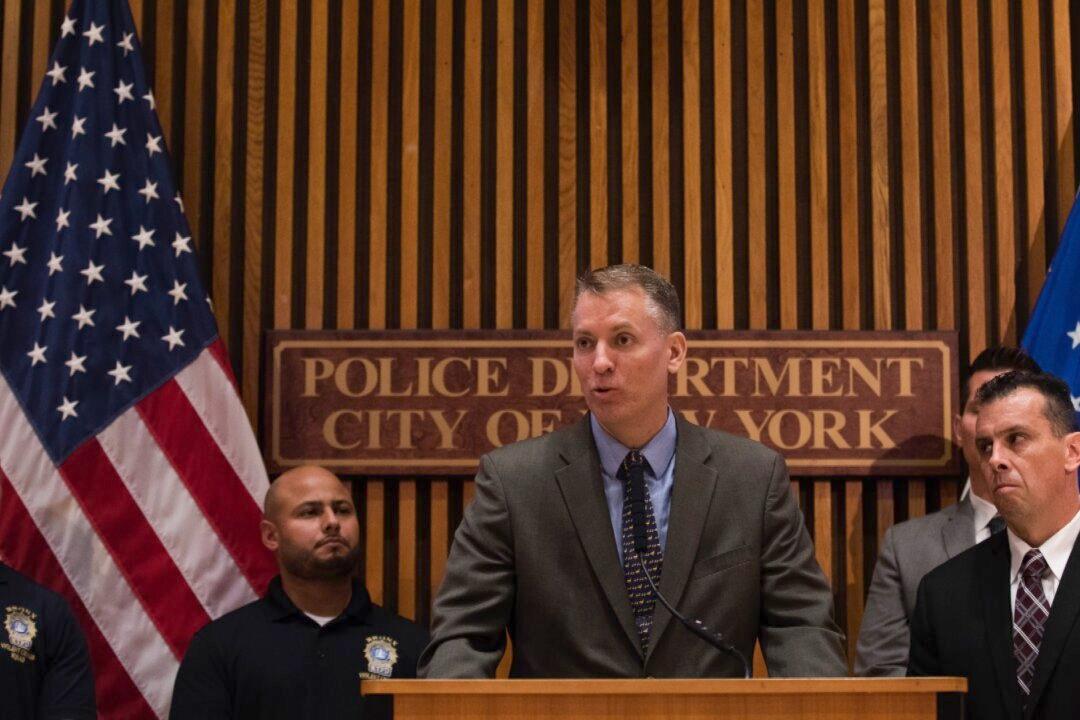New York Police Department Commissioner Dermot Shea has attributed the recent increase in crimes in the city to the new bail reform laws that came into effect on Jan. 1.
Speaking at a press conference on Jan. 24, Shea told reporters that he believes the rise is linked to the implementation of the new bail reform laws (pdf) that abolished cash bail for defendants arrested for many misdemeanors, including assaults without serious injury, and other nonviolent felonies, and include specific provisions encouraging courts to release defendants “on recognizance” while their cases are pending.




